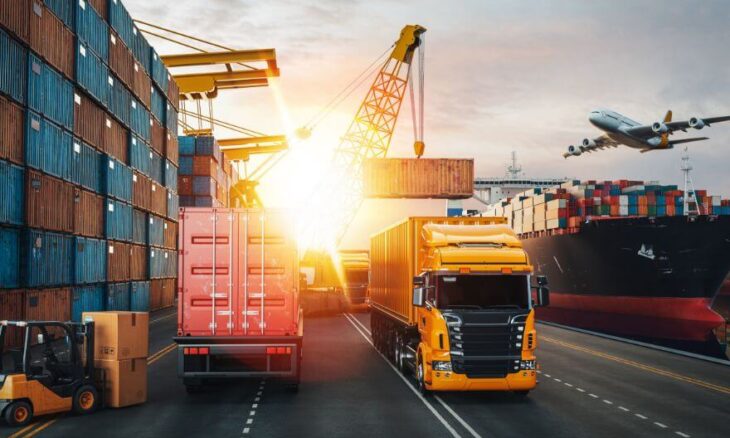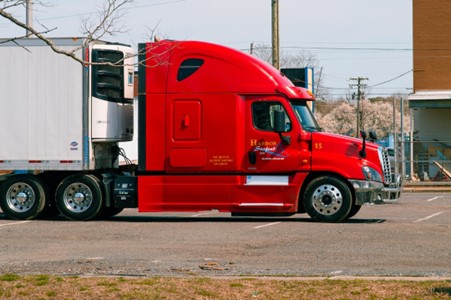
Last Updated on August 22, 2023 by Surender Kumar
In today’s rapidly evolving world, transportation leaders face numerous challenges in effectively managing an ever-increasing demand for efficient and sustainable transportation systems.
As advancements in technology continue to reshape industries, it becomes imperative for these leaders to leverage innovative solutions to stay ahead in the game. Harnessing the power of technology holds immense potential for revolutionizing transportation management.
By seamlessly integrating artificial intelligence (AI) driven tools and platforms, transportation leaders can enhance operational efficiency and address issues like traffic congestion, safety concerns, and environmental sustainability.
In this blog post, we will explore how technology can be harnessed to create smarter transportation systems capable of adapting to the changing needs of our modern society. Keep reading to learn more.
Table of Contents
The Intersection of Technology and Transportation
Transportation forms the backbone of any developed society, supporting daily domestic, business, and leisure activities. With the pressures of a burgeoning population, aging infrastructure, and rising customer demands, embracing technological innovations for efficient transportation management is essential.
The ability to optimize dispatch and routing schemes, strategically plan transportation operations, and efficiently manage drivers and vehicles can significantly impact cost controls and customer satisfaction.
Technology has become an indispensable tool in transportation management, with mobile applications, analytic dashboards, high-speed data processing systems, and now the Internet of Things (IoT) making its mark.
These systems help service providers to respond promptly to customer bookings, efficiently scheduling and dispatching vehicles to minimize driving time and form more fuel-efficient routes.
Data analytics reveal patterns and insights that human eyes may not detect, such as identifying the most cost-effective routes or predicting where and when demand will be highest
Among these key technological solutions is a cloud-based transportation management company, Verizeal. Their platform eliminates manual paperwork, expedites processing speed, and ensures accurate data transmission across the transportation chain.
This platform promotes efficiency and reliability and fosters transparency, visibility, and traceability in the transportation industry.
Value of Data in Modern Transportation Management
The modern transportation industry is data-driven. Every move a vehicle makes, every customer it serves, and every route it travels can be translated into valuable datasets.
Harnessing this data is not just about record-keeping; it provides a way to gain insights and make informed decisions. These include rational choices about vehicle utilization, route planning, driver performance evaluation, and forecasting demand.
With the power of data, transportation managers can assess traffic patterns, identify congested routes, and explore alternative, more efficient pathways.
They can also measure driver working hours, traveling speed, and fuel usage for each trip, which brings transparency to their operations, identifies potential efficiencies, and enhances customer service.
Moreover, by leveraging the power of analytics, transportation managers can gain historical and predictive insights, empowering them to make proactive decisions.
For instance, they can adjust the number of vehicles to match historical demand or prepare for anticipated spikes in usage. They could also use this data to anticipate potential issues such as traffic congestion, vehicle breakdowns, or other unforeseen disruptions and make preparations to mitigate them.
Benefits of AI and Machine Learning in Transportation

AI and machine learning (ML) are rapidly becoming integral to modern transportation management. Through these technologies, transportation companies can automate routine tasks, analyze data, make predictions, and even learn from past experiences to improve future performance.
AI and ML algorithms can analyze vast amounts of data, provide insights, make predictions, and automate decision-making to deliver more efficient, reliable, and safe transportation solutions.
From autonomous vehicles to predictive maintenance, the potential applications for AI and ML in the transportation sector are broad and varied.
For instance, predictive maintenance uses AI to analyze vehicle performance data and predict when a vehicle might need servicing or repairs.
Similarly, AI can automatically adjust routes in response to traffic data, helping maximize efficiency and reduce fuel consumption.
Furthermore, companies increasingly leverage AI technologies such as chatbots and virtual assistants for customer service. These technologies can handle customer queries in real-time, book rides, update customers on their ride status, and much more, thus improving customer experience and allowing transportation management staff to focus on more strategic operations.
Role of GPS Tracking Systems in Transportation Management
Global positioning systems (GPS) have revolutionized transportation management by providing real-time location information for vehicles and assets. This enables necessary adjustments to be made to vehicle routes for greater efficiency and improved customer service.
Besides real-time tracking, GPS data also powers route planning, fuel management, and driver performance monitoring, thus significantly improving fleet productivity and reducing costs.
GPS tracking offers safety benefits by facilitating rapid response in emergency situations. For example, if a vehicle breaks down, fleet managers can quickly locate it and dispatch help. In addition, GPS technology can facilitate the tracking and recovery of lost or stolen vehicles, thus providing an added layer of security.
Furthermore, GPS data is a reliable data source for compliance with various regulations. Fleet managers can use GPS data to monitor drivers’ hours of service (HOS) and adhere to Federal Motor Carrier Safety Administration (FMCSA) guidelines for rest breaks and driving hours.
Blockchain’s Potential in Redefining Transportation Management
Blockchain technology, primarily known for its use in cryptocurrencies, is increasingly being explored for its potential in transportation. With its secure, transparent, and immutable nature, blockchain can help enhance the efficiency and security of transportation operations.
In particular, blockchain can be leveraged to ensure supply chain transparency and traceability, improve the speed and accuracy of transactions, reduce paperwork, and enhance data security.
Additionally, smart contracts can automatically enforce contractual obligations once predefined conditions are met, thus saving time and reducing the potential for disputes.
Furthermore, blockchain can facilitate the creation of decentralized and interoperable transportation systems. For instance, different transportation providers can collaborate on a blockchain network to offer customers a seamless, end-to-end transportation experience, irrespective of the modes of transit involved.
Impact of 5G Technology on Transportation Management
The fifth-generation wireless technology, 5G, holds immense potential for the transportation sector. With its high-speed, low-latency capabilities, 5G technology can enable instantaneous communication between vehicles, infrastructure, and devices.
This could lead to the development of intelligent transport systems (ITS) that use real-time data to optimize traffic flow, reduce congestion, and create safer roads.
5G can also help fuel advancements in autonomous driving technology by enabling en-route computation and decision-making. In fleet management, 5G technology can improve efficiency, tracking, and data collection, among other things.
Precise vehicle tracking and automated, real-time data transfer would mean enhanced capabilities in fleet management, leading to reduced operational costs and improved customer experience.
Embracing Green Transportation Practices

In the face of climate change and environmental degradation, green practices in transportation management are becoming increasingly essential. Technology plays a critical role in facilitating environmentally friendly transportation.
For instance, using electric vehicles (EVs), fuel-efficient route planning algorithms, and telematics can significantly reduce harmful emissions.
Various software tools can aid in optimizing route planning to minimize fuel consumption, manage energy usage, and identify opportunities for reducing waste and inefficiency. These tools provide the essential data and analytics needed to make informed, sustainable choices in transportation management.
Additionally, some transportation companies are exploring green initiatives such as biodiversity offsetting, where they invest in environmental conservation efforts to balance out the impacts of their operations.
Overall, embracing green transportation practices is not just a moral obligation; it can also deliver significant cost savings and improve a firm’s public image.
Technology is redefining how we manage transportation, making it smarter, more efficient, and more sustainable. Technology has transitioned from a back-office support function to a strategic enabler of innovation and efficiency in transportation management. As we move forward, it will continue to be a key factor in shaping the future of transportation.

I am a passionate blogger having 10 years of experience in blogging and digital marketing. I started List Absolute in 2018 to give my passion a live platform. I have also a good hand in writing unique and quality content. Here I contribute in my free time. Thanks for reading. Let me know if I can help you get your work done in a timely manner.
